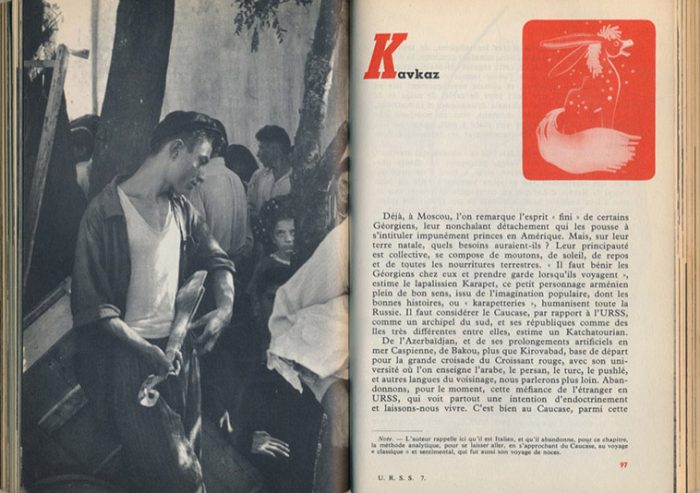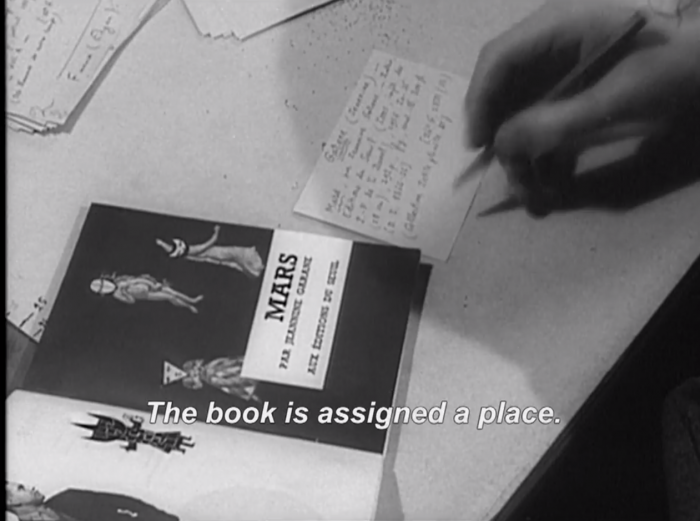Many thinkers enjoy science fiction, and some even create it, but Arthur C. Clarke seemed to possess a mind precision-engineered for every aspect of it. When not writing such now-classics of the tradition as Childhood’s End, Rendezvous with Rama, and 2001: a Space Odyssey, he predicted such actual elements of humanity’s future as 3D printers and the internet. He must also have possessed quite a discerning ear and eye for other works of science fiction — an ability, in other words, to separate the art and the insight from the nonsense. (A useful ability indeed, given that, in the words of sci-fi author Theodore Sturgeon, “ninety percent of everything,” his and Clarke’s field not excepted, “is crap.”)
Asked in 1984 to name his favorite science-fiction films, Clarke came up with this top-twelve:
- Metropolis (1927, watch it above)
- Things to Come (1936)
- Frankenstein (1931)
- King Kong (original version) (1933)
- Forbidden Planet (1956)
- The Thing from Another World (original version) (1951)
- The Day the Earth Stood Still (1951)
- 2001: A Space Odyssey (1968)
- Star Wars (1977)
- Close Encounters of the Third Kind (1980)
- Alien (1979)
- Blade Runner (1982)
The request came to him on the set of 2010: The Year We Make Contact, Peter Hyams’ sequel to Stanley Kubrick’s 2001: A Space Odyssey, which appears on Clarke’s list. This selection may at first seem self-serving, given his own involvement in the film’s genesis, but Clarke’s 2001 and Kubrick’s 2001, parallel projects derived from a collaborative idea, ended up as very different works of science fiction.
Clarke’s choices, “which include some obvious titles, classics and modern sensations, are a well-rounded group that would serve any neophyte well in studying and experiencing the best that Hollywood has to offer in that corner of cinema,” writes SyfyWire’s Jeff Spry. He adds that Clarke couldn’t quite decide whether to include Star Trek II: the Wrath of Khan, the picture credited with turning Star Trek movies into much more than a one-off proposition; and, in addition to Star Wars, which had already made his list, he considered Return of the Jedi — though not, intriguingly, The Empire Strikes Back, now perhaps the most respected Star Wars movie of them all.
This top-twelve list, in any case, shows that Clarke knew a classic when he saw one, and that he must have had a fairly expansive definition of science fiction, one that encompasses even “monster movies” like Frankenstein and King Kong. (Some purists even insist that Star Wars belongs in the fantasy column.) But he also showed, as always, a certain prescience, as evidenced by his selection of Ridley Scott’s Blade Runner, now recognized as one of the most influential films of all time, sci-fi or otherwise, but then still a fresh victim of commercial and critical disaster. Only Philip K. Dick himself, author of the novel that provided Blade Runner its source material, could see its future more clearly. Dick and Clarke’s work may have had little in common, but great science-fictional minds, it seems, think alike.
Related Content:
In 1964, Arthur C. Clarke Predicts the Internet, 3D Printers and Trained Monkey Servants
Arthur C. Clarke Predicts the Internet & PC in 1974
Isaac Asimov Predicts in 1964 What the World Will Look Like Today — in 2014
Metropolis: Watch Fritz Lang’s 1927 Masterpiece
Based in Seoul, Colin Marshall writes and broadcasts on cities and culture. He’s at work on a book about Los Angeles, A Los Angeles Primer, the video series The City in Cinema, the crowdfunded journalism project Where Is the City of the Future?, and the Los Angeles Review of Books’ Korea Blog. Follow him on Twitter at @colinmarshall or on Facebook.










